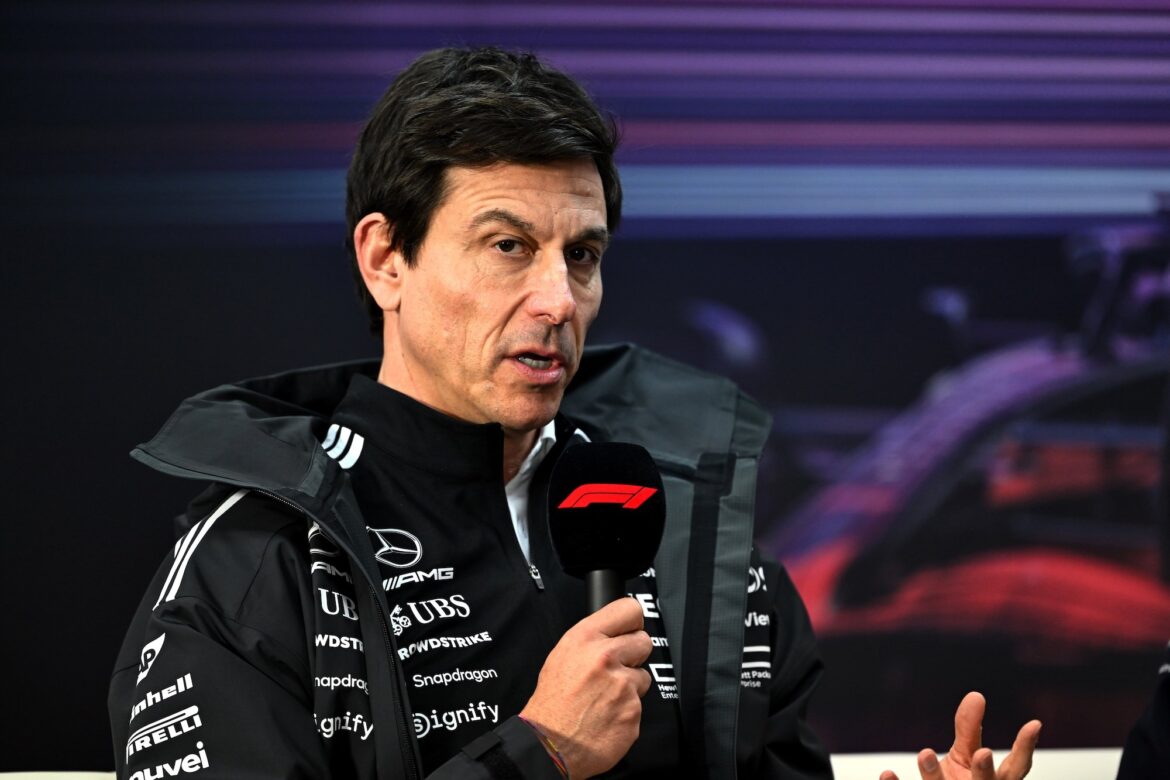The Future of Sustainable Fuel in Formula 1: Financial Implications and Industry Perspectives
In the high-octane world of Formula 1 racing, the push for sustainable fuel sources has sparked significant discussions among team leaders and stakeholders. Toto Wolff, the head of the Mercedes-AMG Petronas Formula One Team, has voiced concerns regarding the financial sustainability of developing these new fuels, especially in light of skyrocketing costs. The conversation around sustainable fuel is not just about environmental responsibility; it also touches on the economic viability for teams competing at the pinnacle of motorsport.
During a recent meeting of the Formula 1 Commission, it was revealed that the projected costs for these innovative fuels could surge dramatically. Estimates suggest that the price per liter might escalate from a range of $22-$33 to an astonishing $170-$225. Some insiders, speaking anonymously, have even posited that costs could exceed $300 per liter. This financial leap could mean that a single racing team might end up spending around $100,000 for fuel alone during a race weekend, culminating in an astronomical total of over $2 million throughout a 24-race season.
Wolff explained at the Miami Grand Prix that the high expenses associated with sustainable fuel stem from the costly ingredients necessary for its production. He articulated his perspective succinctly: "The challenge lies in ensuring that the entire supply chain and energy contributions are environmentally friendly." This transformation requires specific ingredients that are not only hard to source but also come at a premium price, resulting in costs that far exceed initial expectations.
In light of these developments, Wolff emphasized the need for a re-evaluation of the current approach to fuel costs. "We need to explore potential adjustments that could help lower the price per liter," he stated, indicating a willingness to remain open-minded about the ongoing discussions. The collaboration with Petronas, a key partner for Mercedes, reflects a shared commitment to innovation while also analyzing whether regulatory changes could make sustainable fuel economically feasible.
Contrastingly, Christian Horner, the team principal of Red Bull Racing, expressed a different perspective regarding the potential cost increases. According to Horner, the financial implications of rising fuel costs are not a major concern for his team. He noted, "This isn’t a significant issue for us." Horner pointed out that the inherent costs associated with developing these new sustainable fuels are substantial, but he also suggested that a price range might need to be established moving forward. He alluded to the fact that fuel could emerge as a critical differentiator in performance, emphasizing the engagement of fuel companies in this transformative process.
The debate around sustainable fuel in Formula 1 encapsulates a broader discussion about the future of motorsport and its environmental footprint. As teams grapple with the complexities of cost and performance, the challenge lies in balancing financial sustainability with the imperative to innovate in the realm of eco-friendly technologies. The pursuit of sustainable fuel is not merely a trend; it is a necessary evolution in the sport, reflecting changing consumer expectations and regulatory pressures.
In addition to the financial dimensions, the technical aspects of developing sustainable fuel also present hurdles. The engineering teams must navigate the intricacies of compatibility with existing engines while ensuring that the performance metrics remain competitive. This dual focus on performance and sustainability makes the journey toward renewable fuels particularly challenging.
As Formula 1 continues to champion sustainability, the road ahead will likely require collaboration among teams, fuel manufacturers, and regulatory bodies. The exploration of alternative fuels is not just about adhering to environmental standards; it’s also about preserving the integrity of the sport and ensuring that it remains thrilling for fans and participants alike.
The evolution of fuel technology represents a significant chapter in the narrative of Formula 1. Teams must adapt to the changing landscape while keeping their competitive edge intact. The discussions concerning the financial implications of sustainable fuel are essential, as they will shape the strategic decisions made by teams in the coming seasons.
Engagement from fuel companies is paramount in this transition. Their involvement can provide insights into the development of fuels that meet both performance and sustainability criteria. As the industry moves forward, the partnership between racing teams and fuel manufacturers will be crucial in driving innovation and finding solutions to the challenges posed by the introduction of sustainable fuels.
In summary, the landscape of Formula 1 is on the brink of transformation as teams navigate the complexities of sustainable fuel development. While the financial implications are significant, the commitment to innovation and performance remains at the forefront. The dialogue initiated by industry leaders highlights the necessity of collaboration and adaptability in the face of evolving challenges. As the sport looks to the future, the balance between sustainability and competitiveness will undoubtedly define the next era of Formula 1 racing.
The journey toward sustainable fuel is not merely an operational challenge; it is a pivotal moment that could redefine the essence of motorsport. As this conversation unfolds, the commitment of teams, stakeholders, and manufacturers will be essential in ensuring that the sport not only survives but thrives in an increasingly eco-conscious world. In a landscape where performance and sustainability converge, the choices made today will have lasting effects on the future of Formula 1 and its role in promoting environmental stewardship.
